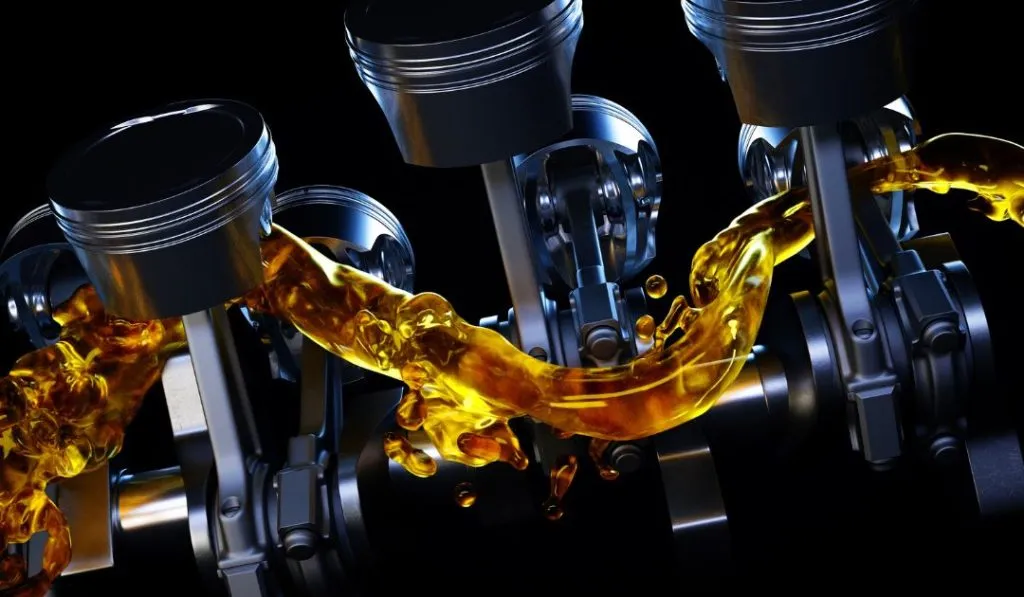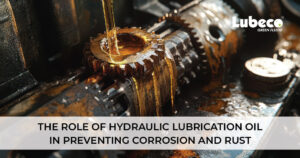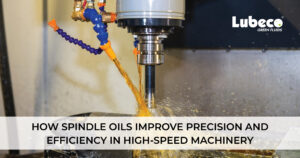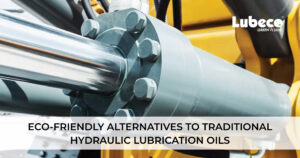Metal-forming oils are specialized lubricants used in metal-forming processes to reduce friction and wear between the metal and the equipment used in the process. Metal forming processes include casting, forging, rolling, extrusion, stamping, and drawing and involve the application of heat, pressure, or both, to the metal to cause plastic deformation and change the metal’s shape.
Metal-forming lubricants also act as coolants to dissipate heat generated during the process, reduce tool wear, and improve the surface finish of the metal. Simply put, they provide a protective layer between the metal and the forming tool, which helps in damage prevention of both the metal and the tool.
Metal-forming oils are made from a variety of base oils such as mineral oil, synthetic oil, or vegetable oil, and they may also contain additives such as anti-wear agents, corrosion inhibitors, and extreme pressure agents to enhance their performance. It is typically used in the automotive, aerospace, construction, and manufacturing industries, where metal forming is a critical part of the production process.
How to Determine a Good Metal-Forming Oil?
The selection of metal-forming oil depends on various factors such as the type of metal being formed, the process used, and the desired outcome. For instance, in hot forging, metal-forming oils need to withstand high temperatures and provide sufficient lubrication to reduce friction and prevent overheating of the equipment. In contrast, in cold-forming processes such as stamping, metal-forming oils need to provide good adhesion to the metal surface to prevent it from being damaged during the process.
However, one should keep some key factors to check while selecting a metal-forming oil that will ensure optimal performance and efficiency in the metalworking process. Some of these characteristics include:
- Lubricity: A good metal-forming oil should have high lubricity to reduce friction between the metal and the forming tool. This helps to prevent damage to the metal and the tool and prolongs its lifespan.
- Viscosity: The viscosity of the metal-forming oil should be suitable for the specific metal-forming process. It should be able to maintain a consistent film between the metal and the tool, without being too thick or too thin.
- Extreme pressure (EP) properties: Metal forming processes involve high pressure and stress, which can cause metal-to-metal contact and wear. A good metal-forming oil should have EP properties that can withstand these extreme conditions and prevent metal-to-metal contact.
- Thermal stability: Metal forming processes can generate high temperatures, which can degrade the performance of the oil. A good metal-forming oil should have good thermal stability to maintain its lubricating properties at high temperatures.
- Corrosion protection: Metal-forming oils should protect against corrosion to prevent damage to the metal and the tool. They should contain additives that prevent rust and other forms of corrosion.
- Environmental friendliness: Metal-forming oils should be safe for the environment and the workers who use them. They should be non-toxic, non-flammable, and biodegradable to reduce their impact on the environment.
Precautions to be taken while applying Metal-Forming Oils
- Proper ventilation: Metal-forming oils can emit fumes that can be hazardous to human health. Therefore, it is essential to ensure proper ventilation in the workplace to prevent the inhalation of these fumes.
- Personal protective equipment (PPE): Workers should wear appropriate PPE, such as gloves, safety glasses, and respirators when handling metal-forming oils to protect their skin, eyes, and lungs from exposure to the oil.
- Storage: Metal-forming oils should be stored in a cool, dry, and well-ventilated area away from sources of heat, ignition, and sunlight. The storage area should be properly labelled, and access should be restricted to authorized personnel only.
- Disposal: Metal-forming oils should be disposed of properly, following local regulations and guidelines. Used oil should be collected in a designated container and disposed of through an authorized waste management service.
- Compatibility: Metal-forming oils should be compatible with the metal being formed, the process used, and the equipment used. Using the wrong type of oil can cause equipment damage, reduce process efficiency, and lead to poor-quality products.
- Handling: Metal-forming oils should be handled with care, as spills can cause slippery floors and create slip and fall hazards.










